Transform the Built Environment
Our master of science degree in civil and infrastructure engineering trains you to use the latest technologies, including virtual reality, artificial intelligence, robotics, remote sensing, and building information modeling. Graduate students specialize in one of five concentration areas.
Our students learn to develop smart city transportation systems, harness the power of big data to build sustainable infrastructure systems, and protect cities from natural hazards, including hurricanes, landslides, and earthquakes.
Our graduate program is part of the Washington Consortium of Universities, which permits students to cross-register at other participating universities. More information can be found at: Washington Consortium of Universities.
Graduate Concentrations
Construction Engineering and Management
Master the construction process, including learning to manage safe, cost-effective, and on-time project delivery. Develop skills in building information modeling, administration, and designing for constructability.
Research Faculty:
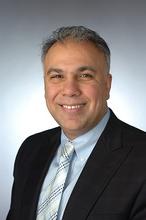
Dr. Sam Salem
Infrastructure and Construction Management
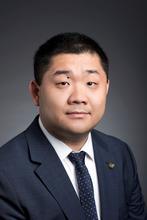
Dr. Wenying Ji
Construction Informatics and Simulation
To learn more about research in this area follow this link: Construction and Engineering Management Research
Environmental and Water Resource Engineering
Learn about water and wastewater treatment, groundwater fate and transport of contaminants, flood mitigation, and water supply and distribution. Use the latest geographic information system software to analyze remote-sensing data for weather forecasting.
Research Faculty:
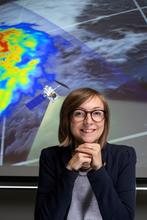
Dr. Viviana Maggioni
Advanced Modeling and Remote Sensing Techniques to Estimate and Monitor Hydrological Variables
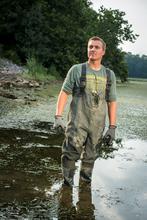
Dr. Celso Moller Ferreira
Field-based monitoring of Hurricane Storm Surge
Numerical Modeling of Coastal Hazards
Natural and Nature-based Defenses for Coastal Resilience

Dr. Lucas Henneman
Atmospheric Modeling
Air Pollution Health Impacts and Environmental Justice
To learn more about research in this area follow this link: Environmental and Water Resources Engineering Research
Geotechnical Engineering
Focus on the mechanics of soil, earth-retaining structures, seepage and slope stability, and foundation design. Get hands-on experience with geotechnical equipment, and discover the latest ways to use recycled materials in pavement, as well how to use geosynthetics in landfill design.
Research Faculty:
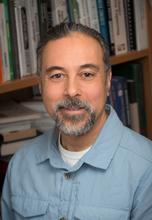
Dr. Burak Tanyu
Forecasting Landslides in Transportation Corridors
Geosynthetics in Reinforced Soil/Bridge Systems
Recycled Asphalt-Highway Systems

To learn more about research in this area follow this link: Geotechnical Engineering Research
Structural Engineering
Learn to create an underwater tunnel crossing, high-speed railway line, green office buildings, or offshore wind farms. Discover the newest, strongest, lightest materials to construct earthquake-resistant structures and retrofit existing buildings.
Research Faculty:
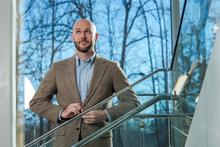
Dr. David Lattanzi
Virtual Robotic Bridge Inspection
Structural Evaluation through Computer Vision
Extracting Finite Element Models from Images
To learn more about research in this area follow this link: Structural Engineering Research
Transportation Engineering
Study transportation planning, traffic flow theory, operations, modeling and simulation. Learn how to optimize the design and operation of multi-modal passenger transportation and intermodal freight logistics systems. Gain knowledge to support transportation system resiliency and disaster preparedness.
Research Faculty:

Dr. Elise Miller-Hooks
Disaster Planning and Response
Intermodal Passenger and Freight Transport
Multi-Hazard Civil Infrastructure Resilience Quantification and Infrastructure Protection Investment

Dr. Mohan Venigalla
Travel Demand
Transportation Air Quality

Dr. Shanjiang Zhu
Demand and Traveler Behavior
To learn more about research in this area follow this link: Transportation Engineering Research
Why Choose Mason?
Students in our program:
- Develop relationships with industry, government agencies, and contactors in the Washington DC Metropolitan area.
- Have the option of completing a thesis if interested in obtaining a research position or pursing a doctoral degree.
- Are able to network with engineering leaders through our Civil Engineering Institute and Alumni.
- Have the flexibility of earning their degrees on a part-time basis. Classes are typically held once per week in the evening, which make it less challenging for working professionals to pursue a graduate degree.
For more information on our program requirements check out the catalog: Civil and Infrastructure, MS.
Take your Career to the Next Level!
After earning their degrees, more than 90 percent of Mason Engineering graduate students find positions in their areas of study. Our students:
-
Benefit from our connections to local industry and government agencies that offer them internships, research experience, and full-time jobs.
-
Build careers with engineering design firms, construction firms, public utilities, non-governmental organizations, and federal, state, or local governments.
“Thanks to the advanced transportation engineering training I received at Mason, I contributed to the development of Washington, D.C. Metro’s new extension. For my master’s thesis, I analyzed travel behavior reactions to transit network disruptions.”
Graduate Student Resources
Advisor for Graduate Programs

Dr. Laura Kosoglu, Director for Graduate Programs
Nguyen Engineering Building
Room 1300
Phone: (703) 993-5319
Email: lkosoglu@gmu.edu
For information on graduate admissions, please contact the office of graduate admissions at (703) 993-9700 or via e-mail at masongrad@gmu.edu.
Graduate Student Life
International Student Information
Important Links:
Need help developing the English language skills needed to succeed in a graduate program at George Mason? No problem!
Our graduate program's INTO pathway option opens opportunities for graduate students who need supplemental English language courses for academic success. Apply to the program here: INTO Mason.
